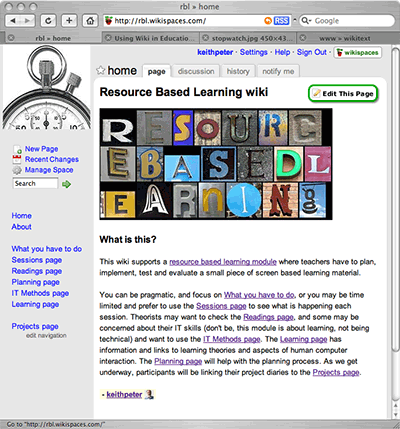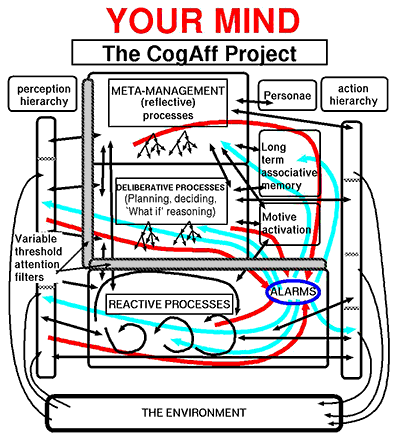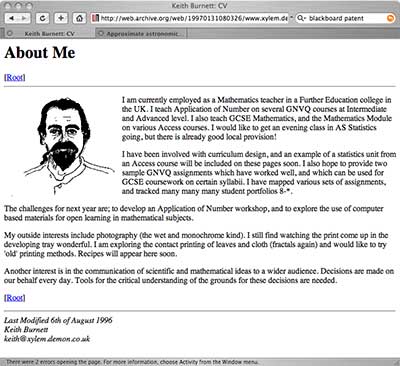August 15th, 2006
This one needs pencil and paper and about 15 minutes.
I’d like you all to write for a few minutes:
I ask you to think back to your own school years—jot down a memorable learning moment from your primary, your secondary, your university school years, and the past five years.
As you write, I’d like you to think about the following
- Were these private moments or shared?
- Did they involve the teacher? Your peers?
- Did they take place in a classroom?
- Were these pleasant moments or not?
- Why do these moments stand out for you?
- What do these moments have to do with your experiences in education now?
- {Do you think those growing up with the Web may have a different set of memories? Be specific}
Adapted from the talk that Barbara Ganley gave at the UK Edublogging conference (I wasn’t there but wanted to be!). The curly brackets bit is my edit.
Posted in ILT | Comments Off
August 15th, 2006

The wikispaces.com system is easy to use and you can have a free public read, private write wiki if you don’t mind Google ads down the right hand side of the pages (the ad content changes to reflect text in the page very quickly by the way). I’ll probably pay have paid the $50 for a year’s add-free account to support the RBL module in place of UseMod.
Advantages of wikispace for use with colleagues include WYSIWYG editing, nice clean modern look, discussion tab for each page, notifications of changes, easy upload of images and files, almost unlimited storage space (something like 2Gb is quoted on the FAQ page, I’m sure that Wikispace are making assumptions about the use level for each wiki). You can upload files and link to them as a blank grey icon and the file name, and that includes MP3 files although there are facilities to embed content from media servers such as YouTube and Odeo.
I especially like the ‘backup’ facility: the entire wiki can be downloaded as either a zipped folder of text files in Wiki markup (Markdown flavour) or as a zipped folder of html pages. The ZIP file and folder have the title of the wiki and the date of creation in the name. A well thought out feature, nice for portfolio use, and gets round the worry of your data being on someone else’s server.
The debit side is: no autolinking and [ ] links as opposed to WikiWords, and no backlinks listing – most classic wikis have the page title as a link to a search that lists pages that link to the page in question. This is useful when you want to explore a topic in a larger wiki. Wikispace does include a tagging facility so category searches and so on are possible. The biggest drawback so far is no way of adding ALT text to images. If wikispaces is trying to get educational buy in especially for their ‘private label’ service, then ALT text is going to be important.
Vicky Davis has set up the Westwood wikispace for her pupils in an American school. The students produce short pieces of writing in response to themes; Web site reviews and so on. Mrs Davis is prepared to tolerate the Google ads, I personally dropped the plastic to remove them on the RBL wiki.
Note added 16th August :: Tags, alas, only work for logged in users: there is no way to set up category indexes that anyone can see. On the positive side, backlinks are supported but the facility has not been integrated into the web interface yet. You can pop a link on a page that will generate a list of all the backlinks to that page, but you have to do that on a page by page basis at present. I’ll be using the RBL Wikispace with colleagues from October onwards and it will be interesting to see if they ‘notice’ any of these issues as newcomers to the wiki concept. Perhaps I just expect to see things that I am used to from Ward’s wiki, Meatball and the clones.
Posted in ILT | Comments Off
August 14th, 2006

The cognition and affect project at Birmingham University is ‘investigating principles for designing or explaining architectures for “whole” intelligent agents, combining many kinds of functionality, whether natural or artificial’.
The graphic above is reduced from their Your Mind graphic that is linked from a page of papers and presentations. I came across this project in my old University in the city in which I live by browsing the history of virtual learning environments page on wikipedia. Small world…
Posted in Notes | Comments Off
August 13th, 2006

St Alkelda’s in Giggleswick is open to the public most days and provides an active centre to the village: while I was taking these photographs, two chaps were running through songs from Gershwin’s Porgy and Bess one singing the barritone parts and the other on the electric piano.
Read the rest of this entry »
Posted in Photos | Comments Off
August 5th, 2006

The way back machine has archived my earliest Web page from August 1996 by strange coincidence. Perhaps I should patent ink sketches used on Web sites?
Posted in Notes | Comments Off
August 5th, 2006
“OLPC is not about learning something, it is about learning learning. Children make things with their laptops, they explore and communicate. When a child, even in the most remote and poorest part of a developing country, is given an electronic game, the first thing he or she will do is discard the manual. The second is use the machine. The speed with which this child will acquire the knowledge to use the device is so astonishing, you risk thinking it is genetic.â€
Which is why Mr Negroponte believes that giving each child an individual computer is better than providing them through shared facilities. “Give each child a pencil and the child then uses it to draw, to write, at school, at home, for play, for study, for making music by beating it, and on and on. Likewise the laptop,â€
Ian Limbatch, Financial Times, March 28th
Found via Seb Schmoller’s fortnightly mailing
Posted in ILT, Notes | Comments Off
August 4th, 2006
And at the end of the day, I want to work in a space full of new ideas, not of monopolies on the obvious…
Martin Langhoff in a comment on the moodle.org discussion [log-in needed] about the notorious Blackboard patent seems to sum it up quite nicely.
Posted in ILT | Comments Off



